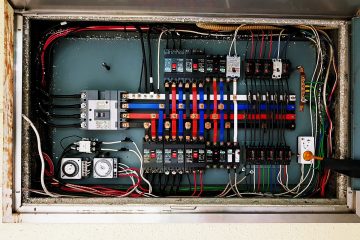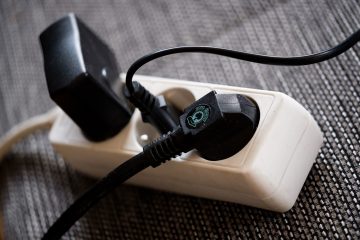Winter in South Africa brings a unique blend of chilly temperatures and captivating beauty. While we embrace the colder months, it’s important to prioritise the safety of our homes and loved ones.
One area that demands our attention this season is electrical hazards. From the use of heaters and electrical appliances to potential power outages and electrical surges, the risks to your home can be significant.
The good news is that we can help you protect your home and ensure a worry-free winter with these simple tips from WiCKS Electrical. Creating a safe and secure environment for you and your family has never been simpler!
1. Conduct a Home Electrical Inspection
The winter season is here which means that it’s crucial to conduct a thorough inspection of your home’s electrical system. This means checking for any loose or damaged wiring, faulty outlets, or flickering lights.
When it comes to inspections, there’s only one person who can do it safely and that’s a qualified electrician. With their knowledge and training, they can identify potential hazards and address them as soon as possible.
This inspection will be able to give you a solid foundation for a safe electrical set-up this winter.
2. Ensure Proper Insulation
Proper insulation plays an important role in keeping your home warm. However, it also helps to minimise electrical hazards.
By insulating your walls and floors, you can prevent cold drafts and reduce the strain on heating appliances. By maintaining a consistent temperature you can avoid overworking electrical devices and causing potentially hazardous situations.
3. Use Electrical Heating Appliances Safely
During winter, electrical heating appliances like space heaters and electric blankets become our best friends. While they’re a great way to stay warm, it is crucial to use them safely to prevent accidents.
An easy way to do this would be to follow the manufacturer’s instructions. Some guidelines will include keeping flammable materials away from heaters and never leaving them unattended.
Along with ensuring that the room is properly ventilated, you should also avoid overloading electrical circuits, using only one heating appliance per outlet.

4. Be Prepared for Power Outages
Aside from Eskom, storms and severe weather conditions can lead to power outages in certain areas. Investing in a backup power source like a generator can keep your essential electrical devices running during these outages.
While this is a great alternative power source, it can only be effective when used safely and in accordance with the manufacturer’s guidelines.
5. Install Surge Protectors
Power surges are common during winter, especially when the electricity supply fluctuates. Unfortunately, these surges can damage sensitive electronic equipment and even pose a fire risk.
Installing surge protectors throughout your home can help protect your devices by redirecting extra voltage. With a variety of surge protectors on the market, we understand that it can be overwhelming trying to choose the right one.
The good news is that a professional like WiCKS Electrical will not only help you choose the best option but install it as well.
6. Educate Your Family
We believe that safety begins with awareness. So, it’s a good idea to take the time to educate your family members about potential electrical hazards, as well as how to respond to emergencies.
Teach them basic electrical safety practices like not touching electrical outlets with wet hands, unplugging unused devices, and reporting any electrical issues immediately.
Call WiCKS Electrical Today
Winter in South Africa is a season of beauty, but it’s also one that needs us to be vigilant about electrical hazards. By following these practical tips and guidelines, you can ensure the safety of your home and loved ones throughout the colder months.
By taking these proactive measures, you can embrace the charm of winter while safeguarding your home against potential hazards. So, call WiCKS Electrical today for all your electrical needs and advice at 082 924 4775.


